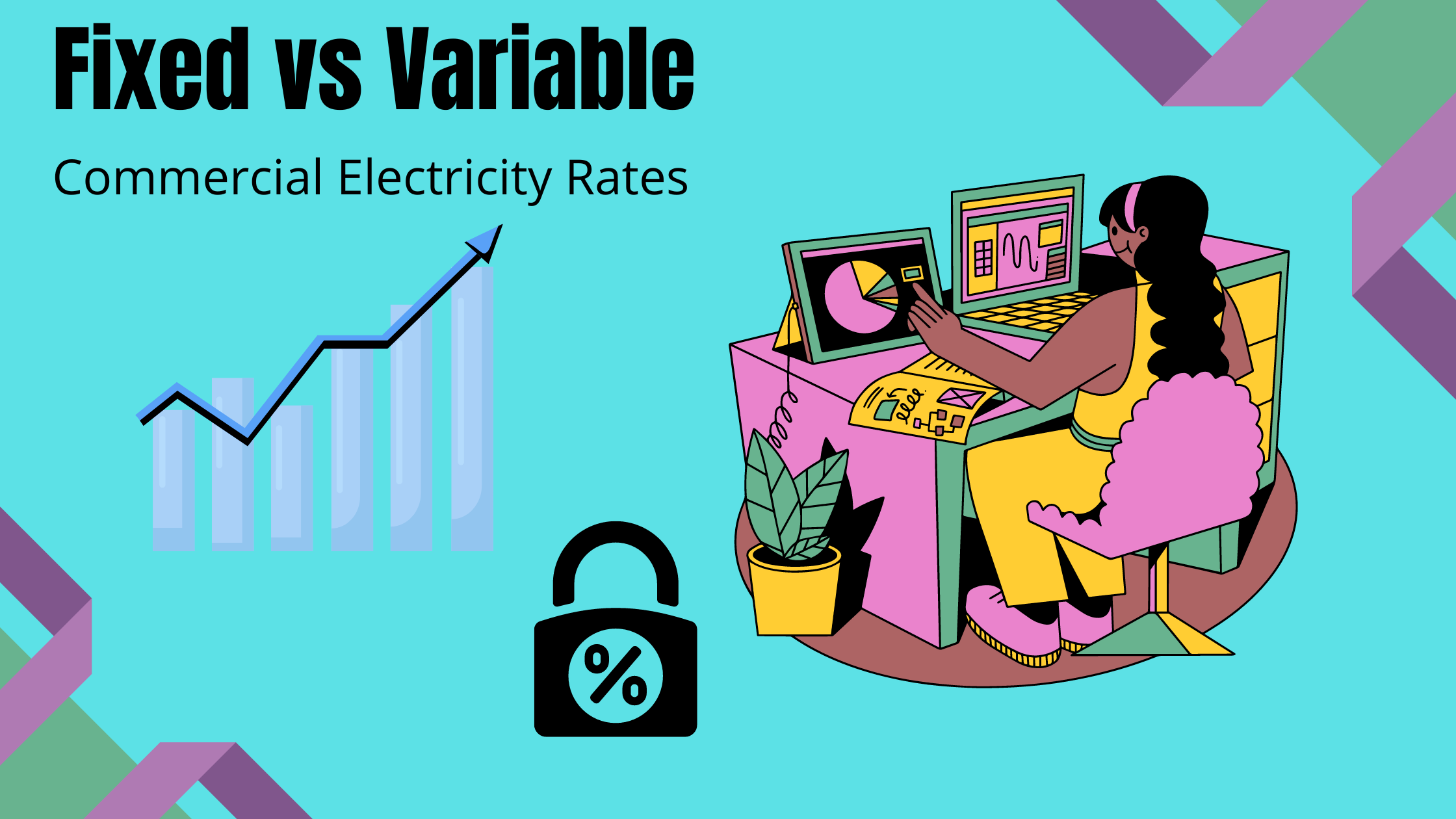
Navigating Pittsburgh’s Commercial Electricity Choice Market: A Boon for Small Businesses
Table of Contents
Introduction
Pittsburgh, the “Steel City,” is known for its rich industrial history and has evolved into a diverse economic hub. As an electricity usage analyst specializing in the Pennsylvania market, I’ve had the opportunity to examine the fascinating patterns of electricity consumption among Pittsburgh’s businesses. In this article, we will explore the types of businesses that call Pittsburgh home and gain insights into their electricity consumption, as well as how they can benefit from the Pennsylvania commercial electricity choice market.
Pittsburgh’s commercial electricity choice market offers a unique opportunity for businesses, especially small enterprises, to take charge of their energy consumption and costs. Let’s delve into what the electricity choice market entails and how it can be a significant benefit to small businesses in Pittsburgh.
Understanding Pittsburgh's Commercial Electricity Choice Market
Like many other regions, Pittsburgh has embraced electricity deregulation, allowing businesses and residents to choose their electricity supplier rather than being tied to a single utility company. This competitive marketplace fosters innovation and offers businesses a chance to tailor their electricity plans to their specific needs.
Rather than being forced to pay a price for electricity set by the government, Pittsburgh businesses have the ability to shop the competitive commercial electricity market and negotiate a rate plan that best fits their personal needs.
Shop for Lower PA Electric Rates
2023 Pittsburgh Business Electric Rates
The Duquesne Light price to compare varies for business customers depending on their usage patterns. For the majority of small businesses in the area the price to compare default rate as of June 1, 2023 is $0.1103 per kWh. This rate was renewed by Duquesne Light and will stay in effect until December 1, 2023.
Current competitive business electricity rates for customers in the Duquesne Light area are below 10¢, giving default rate paying customers a chance to reduce their Duquesne Light electric bills by 10-17%.
Electricity Choice Benefits for Small Businesses
Energy consumption is a major operating expense for most businesses. Managing energy costs through finding cheaper rates and hedging risk against rising costs is the major focus on what benefits electricity choice provides to small businesses. Here is a breakdown of the benefits for small businesses:
Cost Savings
One of the most compelling reasons for small businesses to explore the electricity choice market is the potential for cost savings. Competition among suppliers can drive down prices, offering businesses the opportunity to secure more favorable rates than those provided by traditional utility companies. This cost reduction can significantly impact a small business’s bottom line.
Customized Plans
Electricity choice allows small businesses to select plans that align with their unique energy needs. Whether your business requires stable, fixed-rate plans for budget predictability or flexible, variable-rate plans to adapt to market conditions, the choice is yours. This flexibility empowers businesses to make decisions that best suit their financial and operational strategies.
Pittsburgh Renewable Energy Options
Sustainability is a growing concern for businesses and consumers alike. Pittsburgh’s electricity choice market often includes options for renewable energy sources, such as wind or solar power. Small businesses can choose to support cleaner energy generation, aligning with their sustainability goals and appealing to eco-consciousness customers.
Energy Efficiency in PA
Some electricity suppliers offer energy efficiency programs and incentives that can help small businesses reduce consumption and lower their bills. These programs may include energy audits, rebates for energy-efficient equipment, and advice on optimizing energy use.
Local PA Electricity Rate Competition
The electricity choice market in Pittsburgh promotes local competition, which can benefit small businesses in several ways. Local electricity suppliers often have a better understanding of regional energy needs and may offer more personalized customer service. Additionally, supporting local suppliers can contribute to the local economy.
Negotiation Power
Small businesses often have more significant leverage than residential customers when negotiating electricity contracts through the Pennsylvania energy choice market. Suppliers may be willing to tailor their offerings to meet the specific needs of business customers, allowing for more favorable terms and conditions.
Mitigating Risk
Energy prices can be volatile, and small businesses in Pittsburgh are not immune to market fluctuations. Pennsylvania electricity choice allows businesses to choose plans that mitigate risk, providing stability in the face of uncertain energy costs. This can be particularly valuable for businesses operating on tight budgets.
Electricity Usage Among Pittsburgh's Diverse Businesses
As the second biggest city and metropolitan area in Pennsylvania, Pittsburgh has a diverse population and types of businesses serving that population. Though historically known as an industrial town, in recent years there has been a push to make Pittsburgh a tech hub.
Pittsburgh’s business landscape is a dynamic tapestry of diverse industries, each contributing to the city’s economic vibrancy and electricity consumption. In this evolving energy landscape, businesses of all sizes can benefit from understanding their electricity consumption and exploring ways to make their operations more energy-efficient. Below is a breakdown of some of the industries that consume the most power in Pittsburgh.
Manufacturing and Industrial
Pittsburgh has a deep-rooted history in manufacturing and heavy industry, and this sector continues to be a prominent part of the local economy. Manufacturing businesses, including steel mills, chemical plants, and machinery manufacturers, have substantial electricity demands due to their production processes and machinery. While energy efficiency measures have been adopted in recent years, these businesses remain significant consumers of electricity.
Healthcare and Medical Research
Pittsburgh is home to world-renowned medical institutions like the University of Pittsburgh Medical Center (UPMC) and Allegheny Health Network. These institutions operate large hospitals, research centers, and laboratories, which require consistent and significant electricity supply for medical equipment, research machinery, and patient care facilities.
Technology and Innovation
Pittsburgh’s tech sector has been rapidly expanding, with companies involved in robotics, artificial intelligence, and autonomous vehicle development. Tech firms often rely on data centers and advanced computing infrastructure, resulting in substantial electricity consumption. Companies like Carnegie Mellon University, Argo AI, and PNC Bank have invested in energy-efficient technologies to manage their electricity usage.
Higher Education
Pittsburgh is home to several esteemed universities, including the University of Pittsburgh and Carnegie Mellon University. These institutions operate vast campuses with research facilities, libraries, dormitories, and classrooms, all of which contribute to significant electricity consumption. Many universities in the area are also actively pursuing sustainability initiatives to reduce their environmental impact.
Financial Services
Pittsburgh has a thriving financial services sector, with regional and national banks, investment firms, and insurance companies having a notable presence. These businesses require reliable electricity for their trading floors, data centers, and office spaces. Investments in energy-efficient technologies and backup power systems are common in this sector.
Hospitality and Tourism
Pittsburgh’s tourism industry has been steadily growing, driven by cultural attractions, sports events, and conferences. Hotels, restaurants, and entertainment venues experience fluctuating electricity usage based on the tourist season and events. Many businesses in this sector have adopted energy-saving practices, such as LED lighting and efficient HVAC systems, to manage costs.
Small and Local Businesses
Beyond large corporations, Pittsburgh’s small businesses play a vital role in the local economy. From neighborhood shops to startups, these enterprises have varying electricity needs. Some may focus on sustainability by incorporating energy-efficient practices and renewable energy sources.
How to Make Pittsburgh Electricity Suppliers Compete for your Business
The most straight forward way to get licensed electricity suppliers in Pittsburgh and the rest of Pennsylvania to compete for your business is to hold an auction for the best contract offers. The best contract offers doesn’t always mean the absolute lowest electric rate.
As a business owner or decision maker you might want to lock in a low fixed rate for as long as you can to protect yourself from a rising inflation environment. Perhaps the lowest electric rate being offered will only lock in the rate for 6 months, whereas a slightly higher rate offer will lock in the rate for five years.
If you aren’t sure of what prices will do in the near or long-term future, or would prefer to have someone else handle the bidding process and contract negotiation, you can work with a reputable electricity broker who is trained to get you the very best deal.
Furthermore, if you feel your understanding of the electricity market is fairly solid and don’t want to go back and forth with sales people from several electricity companies, you can simply use the ElectricRate.com commercial electricity rate search engine which makes the suppliers in your area compete for your business in real time.





